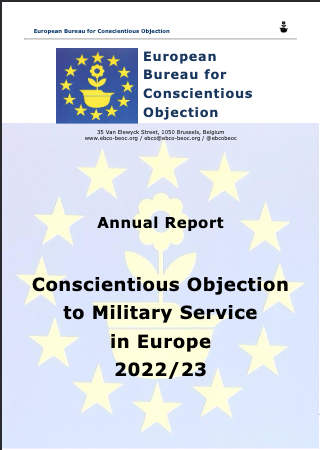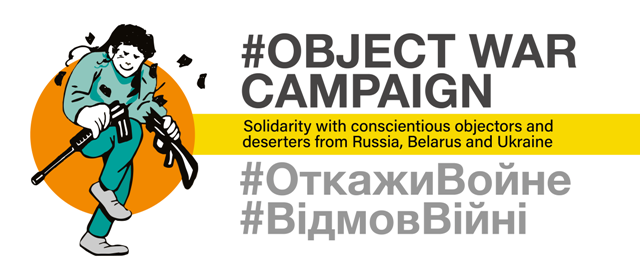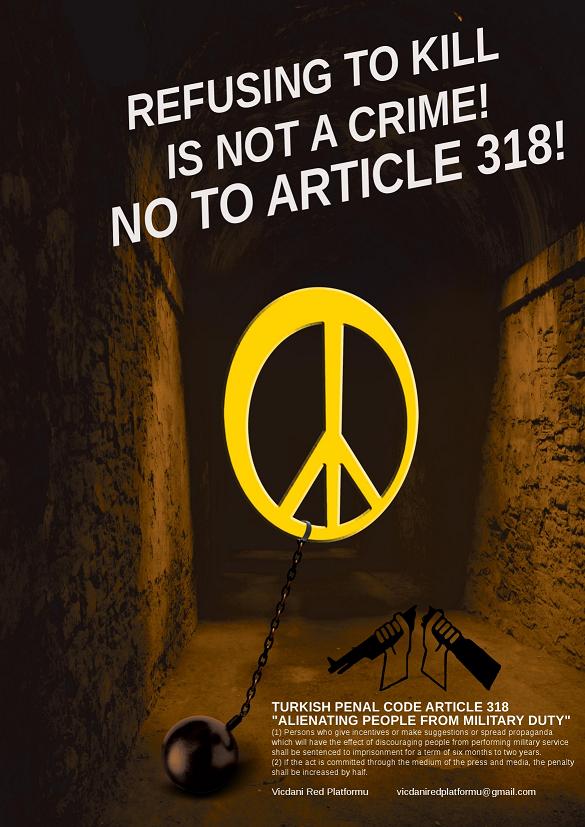Switzerland

|
|
Conscription: |
Yes |
There are no plans to abolish or suspend conscription in the near future. |
|
Conscientious objection: |
1992 |
In 1992, a mandatory referendum was held regarding the proposition to modify the Swiss Constitution in order to create a civilian service. Swiss voters approved by 82.5%. Hence, the Swiss Constitution was modified by introducing the following phrase in Art. 59 lit. 1: “Alternative civilian service shall be provided for by law.” [1] |
|
|
Service
|
Military: |
~9 |
262 days |
|
Civilian: |
~13 |
390 days |
|
|
Minimum
|
Conscription: |
18 |
|
|
Voluntary enlistment: |
18 |
|
|
|
More |
https://ebco-beoc.org/switzerland including the reply of the Federal Office for Civilian Service to the Questionnaire about EBCO’s Annual Report 2022 (e-mail on 06/02/2023). |
||
At the request of a far right-wing political party the Swiss National Council (large chamber of the Swiss Parliament) has yet again decided on several adaptions to the civilian alternative service (Zivildienst) law in 2022, in order to restrict access to, and worsen the conditions of serving in alternative civilian service. This is only two and a half years after it had proposed a package of restrictions in 2019. The declared intention of the adaptions is to prevent young men from accessing their right to Conscientious Objector status. One proposed adaption is to subordinate conscientious objectors under the command of the civil defence troops. The threat to re-establish the examination of conscience is also on the agenda again. A prohibition to apply for civilian service to those who are already in military service is supposedly to avoid weakening the army. Furthermore, increasing the length of civilian alternative service is also intended. This will result in an increased duration of up to 200% or more, depending on the time of application.
The status quo is: a civilian service of 13 months in several periods in places of assignment recognized by the Confederation. Typical areas of work are healthcare and social services, environmental protection and research, development aid programmes and emergency relief in catastrophes. Admission is by written request. Service duration of 150% compared to military service is regarded as proof of a conflict of conscience.
Compulsory military service can be performed in a single 12-month period or in several periods as before.
During the COVID-19 crisis military and civilian alternative service personnel have, as in other countries, been deployed in large numbers to vaccination centres etc. All employers are required to give employees leave on 80% pay while they perform military service every year or two. Press reports indicate that a small number - about 1% of conscripts each year are deemed fit for unarmed duty only; as with a firearm they would be a danger to themselves and others.
According to the reply of the Federal Office for Civilian Service to the Questionnaire about EBCO’s Annual Report 2022 (e-mail on 06/02/2023):
“The duration of the military service is determined by a conscript’s military rank. A Private E-1, for instance, serves for a total of 245 days. In any case, civilian service duty generally lasts 50% longer than military service. Civilian service duty lasts longer than military service for conscripts who apply.
Prior to recruitment, all conscripts are called-up for a mandatory information day (usually at age 18). Regarding this information day, art. 15a lit. 2 of the Federal Act on Alternative Civilian Service (SR 824.0) as well as art. 11 lit. 3 of the Ordinance on the Compulsory Military Service (SR 512.21) prescribe that conscripts are also to be informed about civilian service as an option in case of conscientious objections to military service. The information day is organized by military personnel. However, the information material (posters, film, flyers) is provided by the Federal Office for Civilian Service (see below). Call-up papers do not contain any information about civilian service.
The procedure for a conscript to apply for alternative civilian service remains generally the same in all times and can be summarized as follows:
- An application may only be submitted once recruitment has been completed and ability to perform regular military service has been established.
- Conscripts with conscientious objections may then submit an online request for admission to civilian service. Since 2009, applicants are not required to provide detailed evidence of their conscientious objection to military service and there is no further enquiry. Readiness to undertake civilian service is regarded as sufficient proof for conscientious objection.
- Within three months of submitting their application, conscripts must attend a one-day introductory course. In this course, employees of the Federal Office for Civilian Service inform them about the duties and rights that come along with civilian service.
- After attending the introductory course, applicants are requested to confirm their application online within two weeks.
- Subsequently, applicants are admitted to civilian service – provided that the application form has been correctly completed and the admission procedure has been followed as described above.
The Federal Department of Economic Affairs, Education and Research (EAER) is responsible for civilian service issues; its Federal Office for Civilian Service processes applications and administers the civilian service system in general. It is composed entirely of civilian public servants.
The following table shows the number of applications and admissions from 2018 to 2021. As for 2022, the numbers will be available by the end of February on our website and in a press release:
|
Year |
Applications |
Admissions |
|
2021 |
8’239 |
6’148 |
|
2020 |
6’951 |
5’254 |
|
2019 |
8’342 |
6’088 |
|
2018 |
8’248 |
6’205 |
Please note that applications to civilian service are not “rejected” per se. The discrepancy between the number of applications and the number of acceptances is due to uncompleted admission procedures, e.g. because application forms were incomplete, the mandatory introduction course was not attended or the application was not definitively confirmed. Furthermore, conscripts may apply for civilian service as many times as they wish and at any time. Some conscripts, thus, submit several applications, thereby increasing the total number of applications.
The Federal Office for Civilian Service is responsible for civilian service issues. It is an entirely non-military authority pertaining to the Federal Department of Economic Affairs, Education and Research (EAER).
Alternative civilian service is performed outside the Swiss Armed Forces in public and private civilian institutions of public utility recognized by the Federal Office for Civilian Service as official partner organizations. Conscientious objectors serve civilian purposes and are assigned to duties of public interest. They are mainly active in the following fields: health and social services, nature conservation and environmental protection, education, cultural heritage conservation, forestry and agriculture, development cooperation and humanitarian aid.
According to the Federal Act on the Armed Forces (SR 510.10), the minimum legal age for both con-scription and voluntary enlistment is 18 years (Article 7 of said Act). Concerning the legal minimum age for conscription, the Swiss Conscription system does not make any distinction between peace time and war time. However, the Swiss Government can extend the duration of conscripted service if the situation requires this.
All conscientious objectors can apply for alternative civilian service at all times, even if they are actively serving in the Swiss Armed Forces. The application procedure remains the same as described above. However, conscripts who develop conscientious objections whilst actively serving continue their military service until they are formally admitted to civilian service.
The following table shows the number of applications to civilian service submitted by conscripts either during recruit school or after as well as the number of admissions. As mentioned above, applications to civilian service are not “rejected” and some conscripts apply for civilian service several times.
There are no plans to abolish or suspend conscription in the near future.”










